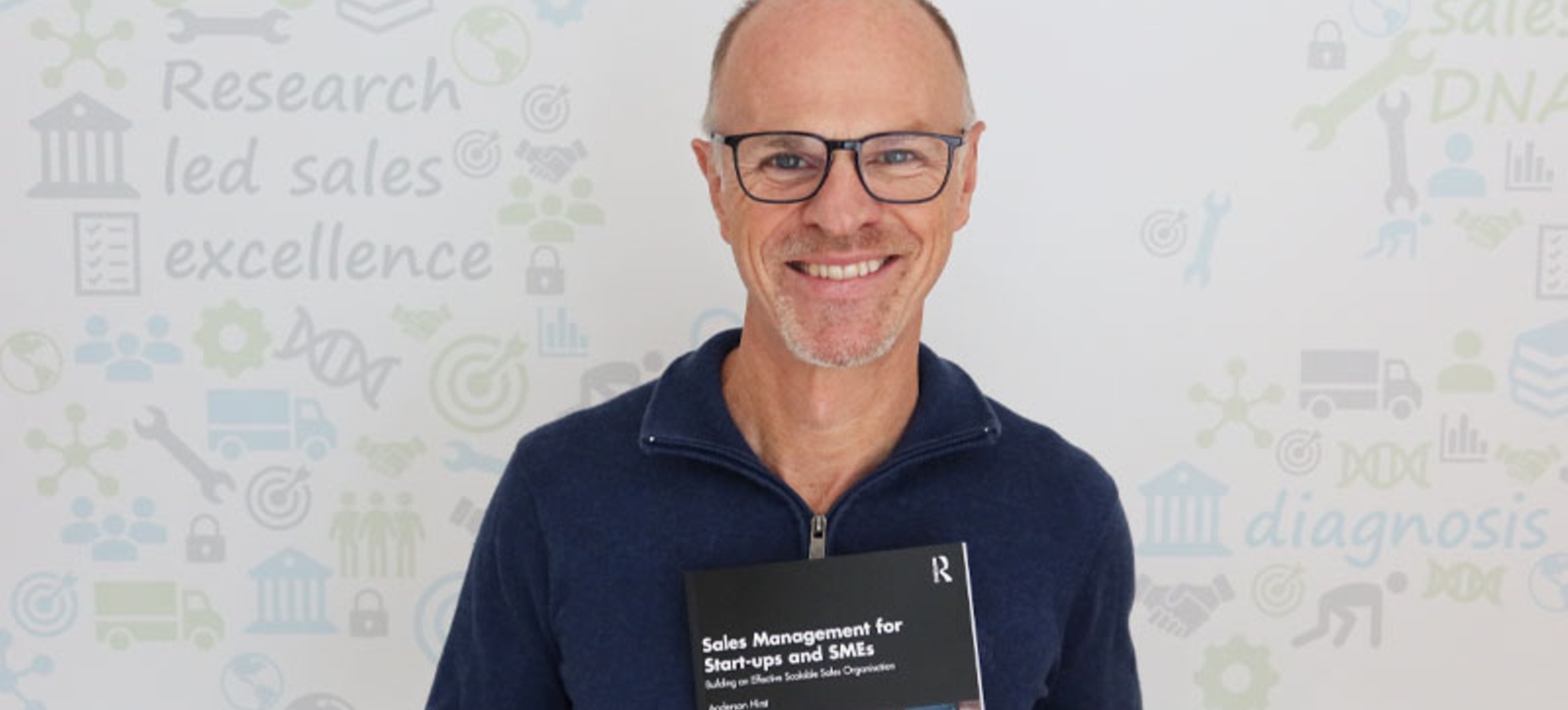
Anderson Hirst: personal selling is highly likely to be a key lever to achieve growth
There has been a 40 per cent decline in small firms expanding their workforce in the last decade.
The startling stat comes from Warwick Business School’s Enterprise Research Centre (ERC), which looked at data from 2012 to 2022 and charted the sorry state of the UK’s start-up scene.
In the ERC’s manifesto to help small businesses in the UK grow, several areas for improvement were identified, including lack of supportive ecosystems (think Silicon Valley) and leadership skills (aren’t they always part of the story?).
Something was missing from this analysis: the UK’s attitude towards sales. Countless surveys reveal that sales is not seen as an aspirational career (did your school careers service ever mention it as an option?).
Unless it is a direct-to-consumer digital marketing business, personal selling is highly likely to be a key lever to achieve growth. If founders have a dim view of the profession, then how likely is growth?
As a consultant, I have worked with many founders of starts-ups and SMEs (small and medium-sized enterprises), and very few are from a sales background. Why would they be? At the very most, 10 per cent of the UK’s working population work in sales.
This often translates into poor sales management practices in small businesses. So how best to correct it?
Sales as a process
Just like process improvement in manufacturing, it’s quite possible to look at the way customers buy, and map out an appropriate way to lead them through this process to increase the chances of success.
Of course, every customer journey can be different, so good salespeople adapt along the way. With a clear view of what good selling looks like, we can start to measure, manage, and improve it.
Many founders see selling as a ‘black box’: a dark art that only a few in society can master. It is worth bearing in mind that Mark Roberg, the head of sales at HubSpot, who increased the US sales and marketing platform’s turnover to $100m, is an engineer by trade. Roberg unlocked the black box of sales by being methodical and seeing it as a process to be managed.
Metrics that matter
Businesses that do scale well obsess about their ‘pipeline’, that is their portfolio of current sales opportunities. Fortunately, there is a huge amount of academic research and practice to inform what works for ‘pipeline management’. Once an SME has mapped out their sales process, they can assess:
-
The number of opportunities at each stage of the journey
-
The percentage of opportunities that move through to the next stage (conversion rate)
-
The speed at which they move through the pipeline
Improving any of these levers will drive top-line growth. Good pipeline management means paying consistent attention to opportunities and doing everything possible to pull these levers.
Regular action-focused pipeline meetings with the sales team are one of the most important routines start-ups and SMEs can install to drive growth.
So which numbers matter?
Building on this logic, start-ups and SMEs can drive growth by focusing on the monetary value of opportunities at each stage of the sales process, the conversion rate from stage to stage, and the time it takes to close them.
For example, an SME might have £30,000 of opportunities in the ‘discovery’ stage (getting to know a customer); £40,000 of deals in ‘proposing’ (where a concrete and costed proposal has been presented); and £30,000 of deals in ‘negotiating’ (finalising terms and signing the contract).
Analysis might show for example, that:
-
60 per cent of discovery opportunities move through to proposing
-
50 per cent of proposing opportunities end up in negotiating
-
90 per cent of negotiating opportunities end up being closed
From these metrics, managers might conclude that they need to increase the total volume of opportunities (that is £100,000 in all the stages of the pipeline) if they want to meet their targets.
They might also conclude that since only 50 per cent of proposals end up being negotiated, that something is going wrong at this stage.
It could be that they are not ‘qualifying’ opportunities well, that is making proposals for potential customers where there is a poor chance of success.
Finally, if the average time in the pipeline seems long, then the sales process can be revisited and optimised or the qualification of opportunities could be improved.
The science of sales
My time at Warwick Business School studying for an Executive MBA taught me there is a lot of excellent research today concerning selling. It is not a sleazy profession. It is not a mystical black box enjoyed only by those with the ‘gift of the gab’.
UK start-ups and SMEs would greatly benefit from embracing sales as a modern, high-ethics profession if they are serious about growth.
It seems to me that the US culture is very different: sales is more respected as a profession, and the ‘scale-up’ mentality is part of founders’ DNA.
Through some simple customer journey work, process-mapping and implementation of the core metrics outlined, businesses can do a lot to drive their own growth and buck the declining trend of the UK’s vital start-up scene.
Anderson Hirst is a Director at Selling Interactions Ltd and author of Sales Management for Start-ups and SMEs: Building an effective scalable sales organisation.
He is a graduate of the Executive MBA at Warwick Business School.
For more articles on SME growth and entrepreneurship sign up to our Core Insights newsletter.




 X
X Facebook
Facebook LinkedIn
LinkedIn YouTube
YouTube Instagram
Instagram Tiktok
Tiktok